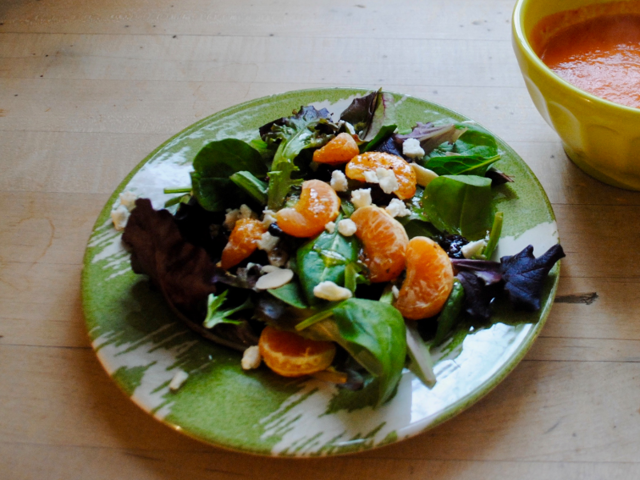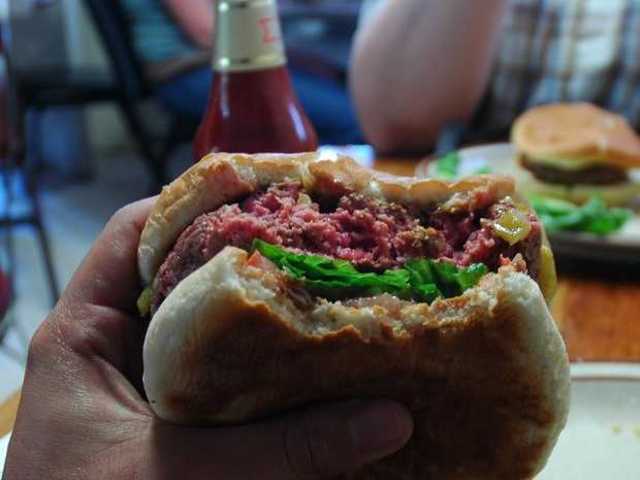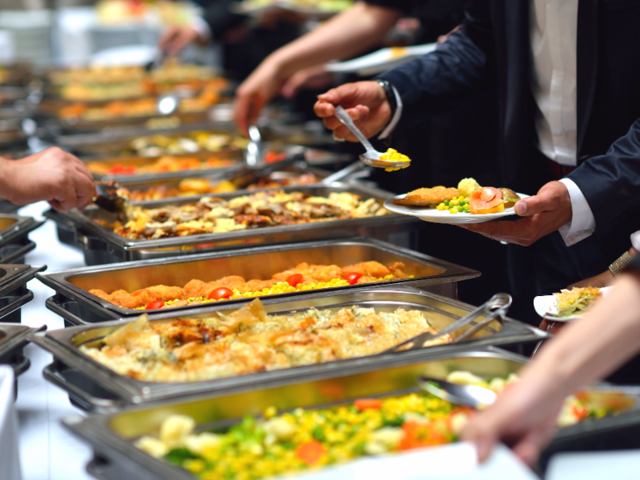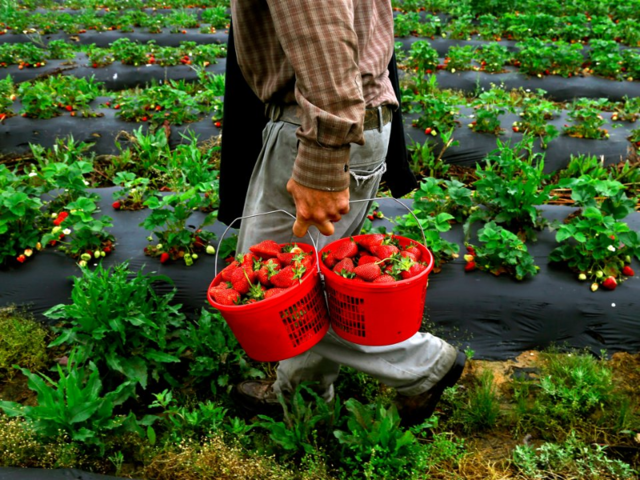Apr 29, 2018
Police raid gutkha unit in Sulur
Surprise crackdown:Police vehicles parked outside the betel nut products manufacturing unit near Sulur in Coimbatore district on Saturday when the premises was raided.
650 kg of gutkha and 700 kg of pan masala confiscated from the premises at Kannampalayam
In an overnight operation, the Coimbatore district (rural) police seized stocks of gutkha and pan masala worth several lakhs of rupees from a betel nut (supari) products manufacturing unit at Kannampalayam near Sulur.
The police seized around 650 kg of gutkha of one brand, 6,000 sachets of which were stored in a carton. Around 700 kg of pan masala was seized from the unit. The police are yet to confirm if the pan masala contained tobacco.
The police said that Amit Jain of New Delhi was allegedly involved in the manufacture of the banned tobacco products at the unit on the pretext of manufacturing betel nut products.
Manager detained
Coimbatore Rural Superintendent of Police Pa. Moorthy said that a case would be registered against Mr. Jain and others under the Cigarette and Other Tobacco Products Act on Saturday. Mr. Jain was not in Coimbatore at the time of the raid. The police said that the unit manager and three employees were detained.
According to the police, the unit located at Nallan Thottam near Kannampalayam was searched based on specific information from the police.
A team comprising senior police officers, personnel from the Prohibition and Excise Wing and the armed reserve, reached the factory around 7 p.m. on Friday. The search and seize operations continued till 11 a.m. on Saturday. Mr. Moorthy oversaw the raid. The unit was sealed after the raid in the presence of revenue officials.
Mr. Jain had reportedly purchased the property, spanning over five acres at Nallan Thottam, in 2010. It was earlier a textile unit.
Manufacturing of betel nut products started in 2011 and was stopped following a ban on gutkha in Tamil Nadu. However, the unit had allegedly resumed manufacturing of tobacco-based products.
No warning label
“The sachets of gutkha seized from the unit did not have a label warning about tobacco contained in them. Samples of the pan masala seized will be sent for clinical examination to confirm the presence of tobacco. We are investigating the difference found in stocks and the stock list,” said a police official.
Sources said that north Indians were employed at the unit and people in the locality were unaware of what was happening at the place.
A senior official from the Food Safety and Standards Authority of India (FSSAI) said that the unit was issued licence for the manufacture of non-tobacco-based products using betel nut.
Food companies are trading on Indians’ belief in ayurveda to do brisk business – but at what cost?
Food Safety and Standards Authority needs to examine products that promise scientifically unproven health benefits.
In India, you can buy saffron that is “useful in asthma, indigestion, body pain, fever, dry skin diseases and pregnancy”, ghee that increases “memory power”, intellect and digestion, and lemon pickle that “improves your immunity level and helps the human body develop resistance against infectious agents”.
Such claims rely not on the credulity of Indian consumers but on deep and widespread convictions about the power of foods to promote well-being. A predisposition to seek extraordinary qualities from foods provides an irresistible promotional proposition for food businesses. However, the sale and promotion of foods in India based on traditional beliefs about their health and nutritional properties presents a tricky regulatory challenge.
In modern India, consumers expect higher standards in consumer products and stronger consumer protection, including specific regulation of food standards and nutrition and health claims. To meet this expectation, the Indian government established the Food Safety and Standards Authority and passed the Food Safety and Standards Act, 2006 to provide a comprehensive regulatory framework for the sale of food.
The FSSA shares many similarities with the European Union Regulation 1924/2006 on nutrition and health claims for foods. In both cases, the aim of the legislation is to provide reliable information for consumers to be able to make informed food choices.
Putting it to science
The legislation provides that nutrition and health claims for foods, for example, may only be made if there is scientific evidence to support them. The European Food Safety Authority and the Scientific Committee Panel of the Food Safety and Standards Authority of India provide advice to their respective legislators as to whether they are satisfied that there is sufficient evidence in support of a link between the consumption of a food and the nutrition or health claim made for it.
In contrast to many Europeans, many Indian consumers are influenced by traditional beliefs about the nutrition and health benefits of foods and in particular, by ayurveda. In ayurveda, certain foods are “hot” (onions, ginger, peppers). Other foods are “cold” (coconut, melons, cauliflower). Each has particular health benefits. Such diets promote the consumption of pulses and vegetables and the avoidance of meat. There is a strong belief in the functional properties of foods in nutrition and health.
Commercialisation of ayurveda
However, the practice of ayurveda exists outside ordinary regulatory structures and its commercialisation raises difficult legal and ethical issues in India. Indeed, it would appear to be in contradiction to India’s own food safety law, which it claims “lays down science-based standards for articles of food and regulates their manufacture, storage, distribution, sale and import to ensure availability of safe and wholesome food”.
In fact, traditional medicine and beliefs are afforded the protection of a government department. The Ministry of Ayush was formed in 2014 to “ensure the optimal development and propagation of alternative systems of healthcare” because Indian traditional beliefs are still very deep rooted and valued.
Because of this, businesses such as Patanjali, an Indian company co-founded by Baba Ramdev and which enjoys revenues of US$1 billion a year through selling such things as cooking oils that claim to “promote hair growth”, do not come under the same FSSA scrutiny that other food claims would do. Patanjali also sells honey with the claim that “regular use treats cough, cold and fever”, promotes “early healing of injuries” and that it might be used to “remain healthy forever”. The company was contacted to ask about the properties of their products, but it did not provide comment.
Claims such as these on a non-traditional product would contravene the EU’s 1924/2006 regulation, which also requires health claims to be based on generally accepted scientific evidence. However, in India these products just aren’t put to the scientific test.
It is time the FSSA countered the Ministry of Ayush and those businesses that are legally able to trade on traditional beliefs to sell food produce that promise scientifically unproven health benefits.
Ajay Patel is senior lecturer in food law, Manchester Metropolitan University.
This article first appeared on The Conversation.
Two arrested for repackaging expired food
Raid at distribution centre at MaraduTwo officials of a company producing products under Malto Vita and Choco Malt brands were arrested on Friday in connection with a case in which a distribution centre at Maradu was found to be repackaging expired baby and children’s food products. A special squad led by the Thrikkakkara Assistant Commissioner arrested Gopakumar Menon, 63, of Palakkad, and K.R. Suresh, 55, of Shoranur.
They were senior regional officers of Continental Milkose (India) Ltd. On April 7, the Food Safety Authority officials had raided the distribution centre at Maradu following complaints that stale chocolates and energy products were being sold.
A case under IPC Sections 468 (Forgery for purpose of cheating) and 420 (Cheating and dishonestly inducing delivery of property) were registered against both.
They were senior regional officers of Continental Milkose (India) Ltd. On April 7, the Food Safety Authority officials had raided the distribution centre at Maradu following complaints that stale chocolates and energy products were being sold.
A case under IPC Sections 468 (Forgery for purpose of cheating) and 420 (Cheating and dishonestly inducing delivery of property) were registered against both.
A food-poisoning expert reveals 5 things he never orders at restaurants - and it's not what you'd expect
Salads

Your healthy choice is actually one of the riskier options on the menu at chain restaurants.
"I'd eat sushi before I ate a salad," Marler said. "I wouldn't eat it at a 7-11, but I've eaten sushi at a good sushi restaurant."
While cooking veggies and meat can kill germs, salads bring together a lot of raw foods that have had countless opportunities for contamination. Restaurants that buy pre-chopped lettuce from suppliers put themselves at even greater risk.
"Not every lettuce leaf in the field is contaminated E. coli, but some of them are," Marler said of the risks of pre-washed, bagged lettuce. "And when you mix and match it at a processing facility and chop it up, you get what you get."
Soft-serve ice cream

Cleanliness of ice and ice cream machines can cause huge problems when workers aren't following safety guidelines. There's a grossness factor of finding mold in soft-serve ice cream machines — but there are also real risks.
"There have been a number of cases linked to listeria, where listeria will get into the inner workings of these ice cream machines and kill people," Marler said.
Rare meat

Marler agrees with known-germaphobe President Trump on at least one thing: well-cooked meat is the way to go.
"Skip the medium hamburger and get it well done, and just add a little ketchup like the president," he said.
According to the expert, meat needs to be cooked to 160 degrees throughout to kill bacteria that could cause E. coli or salmonella.
Buffets

"I never eat a buffet," Marler said. "I'll order off the menu."
Buffets have a heightened risk of exposure to the lines of people who might touch or sneeze on food, contaminating the dish for anyone else. Then, there is the temperature issue, as dishes are better able to host bacteria when kept at room temperature.
Food shipped internationally

In general, Marler says people can best avoid food poisoning by simply eating food handled by as few people are possible and only eating at restaurants with strict food safety practices.
While chain restaurants tend to have strict safety policies, if they serve food from suppliers that got contaminated at some point along the supply chair, there is little they can do. And, those risks are exacerbated in the cases of food that is being imported from a significant geographical distance.
"You can get Hepatitis from scallops from the Philippines, but you probably shouldn't be eating scallops from the Philippines," Marler said. "You can get Hepatitis A from strawberries from Egypt, but you probably shouldn't be getting strawberries from Egypt."
Food Safety test detect use of banned dye
Peren, April 28 (MExN): The Mobile Food Safety on Wheels team has detected use of a banned dye in chilli powder products in Peren town.
According to a press release issued by Food Safety Officer, Chief Medical Office, Peren during the test, the team detected chilli powder, which were sold in the local market, dyed with cancer causing synthetic colour Rhodamine B dye which breaks down Red Blood Cells and adversely cause growth retardation and damages the liver and kidney and Sudan Dye which is highly toxic to liver.
“This was also detected in Dimapur market,” the press release stated.
Different food products like spices, local water, fruit juice and drinks, milk etc were collected from shops in the town and tested in the mobile lab at Peren Town. The team had also conducted an awareness programme along with the testing of food at Peren Town on April 27.
The team consisted of technicians from State Public Health Laboratory, Kohima assisted by the Food Safety Officer and Sanitary Inspector, Peren.
Products such as chilli powder is consumed daily by the public without knowing the harmful affect it can have on the body. “Therefore, it is our concern that higher authorities exercise immediate steps towards these kind of rampant selling of health deteriorating substances found in common place we find and eat,” the Officer added.
Further, the local waters and other liquid products tested were found to be in the permissible range. The Food Safety on Wheels also held a brief awareness programme for the students in the Town Hall in the evening. The ADC, Peren had also visited the Team in the morning. Security was provided by the SP for assisting the team for the whole day. Volunteers from youth and the public eagerly helped the team in performing their work successfully.
Subscribe to:
Comments (Atom)


